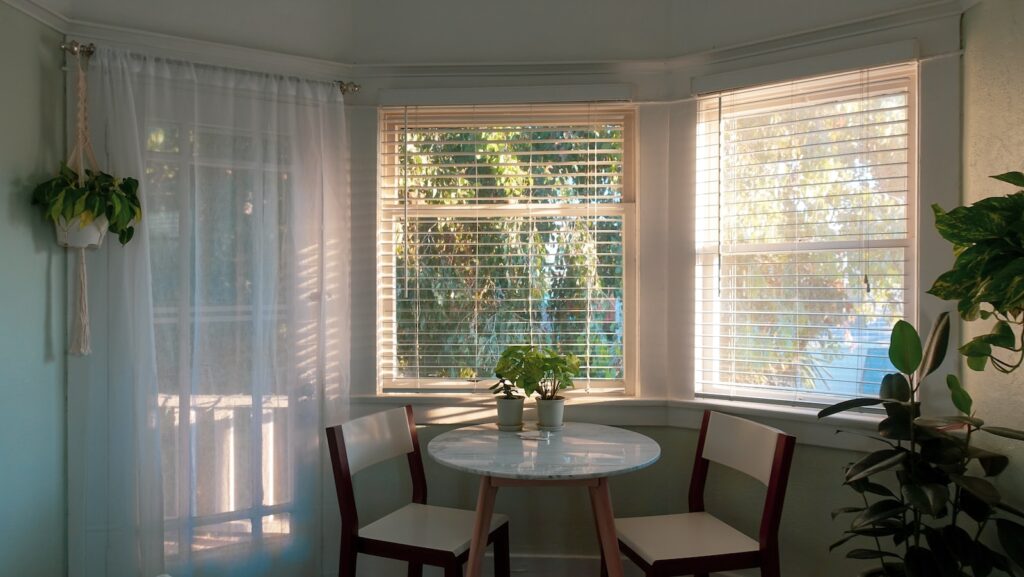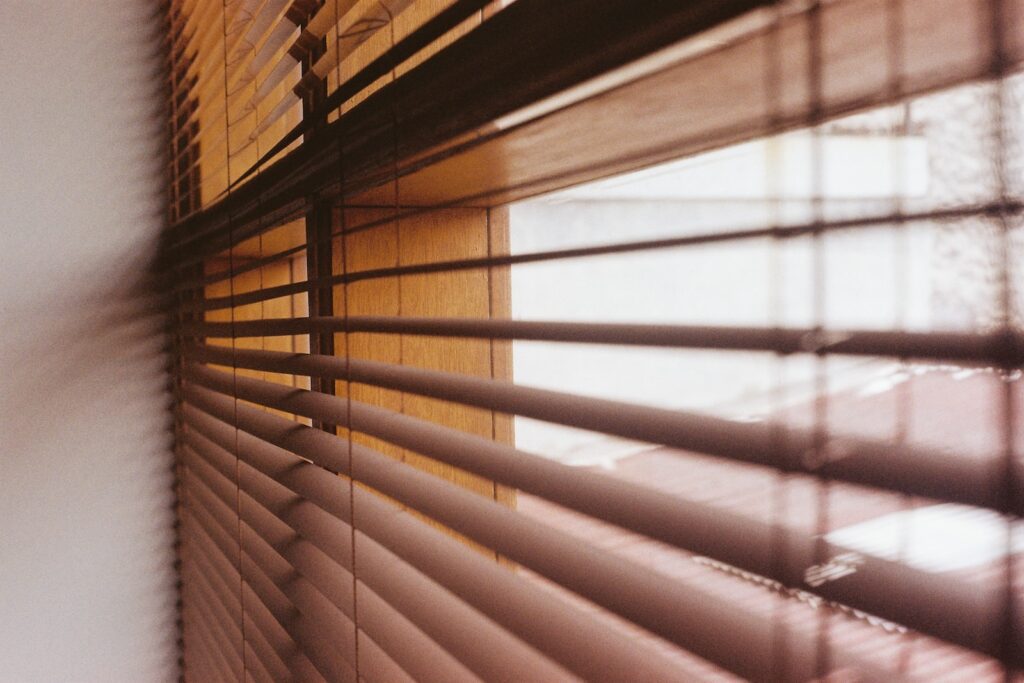Are you a homeowner looking to save on taxes? Have you recently installed new window blinds and wondered if they are tax-deductible? The answer is not a straightforward yes or no, and it can depend on a few factors.
Firstly, if you are a homeowner and use your home as your primary residence, the cost of window blinds is generally not tax-deductible. However, if you have a home office or use a portion of your home for business purposes, you may be able to deduct the cost as a business expense. Let’s dive deeper into the details to see if you can benefit from any tax savings with your window blinds.
Can I Get My Window Blinds Tax Deducted?
Window blinds are an essential part of home decor that can improve the aesthetic value of your property, provide privacy, and control the amount of light entering your room. However, many homeowners wonder if they can claim a tax deduction for their window blinds. In this article, we will discuss the tax implications of purchasing window blinds and whether they are tax-deductible or not.
1. The Definition of Tax Deduction for Home Improvements
A tax deduction is a reduction in your taxable income that can reduce the amount of tax you owe to the government. Home improvements, such as installing new window blinds, can be tax-deductible if they meet certain criteria. To be eligible for a tax deduction, the home improvement must be considered a capital improvement, meaning that it adds value to your property and extends its useful life.
When it comes to window blinds, the IRS considers them a personal expense rather than a capital improvement. Therefore, they are not eligible for a tax deduction. However, there are some exceptions to this rule that we will discuss in the following sections.
2. Energy-Efficient Window Blinds
If you install energy-efficient window blinds, you may be eligible for a tax credit, which is different from a tax deduction. A tax credit is a dollar-for-dollar reduction in the amount of tax you owe to the government. The IRS offers a tax credit for certain energy-efficient home improvements, including windows and window treatments.
To qualify for the tax credit, the window blinds must meet specific energy-efficiency standards outlined by the Department of Energy. These standards vary depending on the type of window blinds you install, and the tax credit is only available for a limited time.
3. Home Office Deduction
If you use your home office for business purposes, you may be eligible for a tax deduction for the expenses related to your home office. This includes the cost of purchasing and installing window blinds in your home office.
To qualify for the home office deduction, you must use your home office exclusively for business purposes. This means that you cannot use your home office as a guest room or storage space. Additionally, you must be self-employed or work for an employer who requires you to work from home.
4. Medical Expense Deduction
If you have a medical condition that requires you to install special window blinds, you may be eligible for a tax deduction for the cost of the blinds. To qualify for the medical expense deduction, the window blinds must be prescribed by a licensed medical professional.
Additionally, the cost of the window blinds must exceed 7.5% of your adjusted gross income (AGI). For example, if your AGI is $50,000, the cost of the window blinds must exceed $3,750 to qualify for the medical expense deduction.
5. Conclusion: Are Window Blinds Tax Deductible?
In summary, window blinds are not generally tax-deductible. However, there are some exceptions to this rule. If you install energy-efficient window blinds, you may be eligible for a tax credit. If you use your home office for business purposes or have a medical condition that requires special window blinds, you may be eligible for a tax deduction.
It is essential to consult a tax professional to determine your eligibility for any tax deduction or credit related to window blinds. Additionally, you should keep all receipts and documents related to the purchase and installation of window blinds to support your claim for a tax deduction or credit.
6. Benefits of Window Blinds
Although window blinds are not generally tax-deductible, they offer several benefits that make them a worthwhile investment. Some of these benefits include:
– Improved privacy
– Better light control
– Enhanced energy efficiency
– Increased home value
– Customizable designs to match your decor
7. Window Blinds vs. Other Window Treatments
When it comes to window treatments, there are several options available, including curtains, shades, and shutters. However, window blinds offer several advantages over other types of window treatments.
For example, window blinds are more customizable than curtains or shades, allowing you to adjust the amount of light and privacy according to your preference. Additionally, window blinds are typically more durable and easier to maintain than curtains or shades.
8. How to Choose the Right Window Blinds
Choosing the right window blinds can be a daunting task, given the wide variety of options available. When selecting window blinds, consider factors such as:
– Your budget
– Your decor style
– The level of privacy and light control you need
– The size and shape of your windows
Additionally, consider the material and quality of the window blinds to ensure that they will last for years to come.
9. How to Install Window Blinds
Installing window blinds is a relatively simple process that can be done in a few steps. First, measure the size of your windows to ensure that you purchase the correct size of window blinds. Then, mount the brackets on the wall or window frame and attach the blinds to the brackets.
Be sure to follow the manufacturer’s instructions carefully to ensure that the blinds are installed correctly and securely.
10. Conclusion
In conclusion, window blinds are not tax-deductible in most cases. However, there are some exceptions to this rule, such as energy-efficient window blinds, home office deductions, and medical expense deductions.
Regardless of tax implications, window blinds offer several benefits, including improved privacy, light control, and energy efficiency. When selecting window blinds, consider factors such as your budget, decor style, and the level of privacy and light control you need.
Frequently Asked Questions
What are tax deductions?
Tax deductions are expenses that reduce the amount of income subject to taxation. These expenses can be claimed by taxpayers to reduce their taxable income and, therefore, their tax liability. Tax deductions can include expenses related to healthcare, education, charitable donations, and home improvements.
In general, tax deductions are meant to encourage taxpayers to engage in certain activities that benefit society as a whole, such as donating to charity or improving their homes.
Can window blinds be considered a tax deduction?
The answer depends on the specific circumstances and intended use of the blinds. In general, window blinds are not considered a tax deduction unless they are part of a larger home improvement project that qualifies for a tax deduction.
For example, if a homeowner installs energy-efficient window blinds as part of a larger home renovation project that qualifies for a tax deduction, then the cost of the blinds may be deductible. However, if the blinds are simply being replaced for aesthetic reasons, they would not be considered a tax deduction.
What are some home improvements that qualify for tax deductions?
Certain home improvements may qualify for tax deductions, such as those that improve the energy efficiency of a home. Examples of home improvements that may qualify for tax deductions include solar panel installations, energy-efficient windows and doors, and insulation upgrades.
It is important to note that not all home improvements qualify for tax deductions, and the specific requirements may vary depending on the tax laws in your jurisdiction. It is recommended that you consult with a tax professional or do your own research to determine which home improvements may qualify for tax deductions.
How do I claim a tax deduction for home improvements?
If you have made home improvements that qualify for a tax deduction, you will need to report the expenses on your tax return. The specific process for claiming a tax deduction for home improvements may vary depending on the tax laws in your jurisdiction.
In general, you will need to provide documentation of the home improvements, including receipts and invoices for materials and labor. It is recommended that you consult with a tax professional or do your own research to ensure that you are following the proper procedures for claiming a tax deduction for home improvements.
What are some other expenses that may be tax deductible?
In addition to home improvements, there are many other expenses that may be tax deductible. These can include expenses related to healthcare, education, charitable donations, and business expenses.
Examples of expenses that may be tax deductible include medical expenses, tuition and education expenses, charitable donations, and business expenses such as travel and equipment purchases. It is recommended that you consult with a tax professional or do your own research to determine which expenses may be tax deductible in your specific situation.
2023 Energy Efficient Windows Tax Credit | Inflation Reduction Act Explained
In conclusion, it is important to understand that window blinds may be tax deductible under certain circumstances. If you are using them for business purposes, such as in a home office, you may be able to claim the cost of the blinds as a business expense on your taxes. However, if you are simply using them for personal reasons, such as to improve the look of your home, they are not tax deductible.
It is always a good idea to consult with a tax professional to determine your eligibility for tax deductions. They can help you navigate the complex tax laws and ensure that you are taking advantage of all available deductions. With the right guidance, you can maximize your savings and reduce your tax liability.
Overall, while window blinds may not be a significant tax deduction, every little bit helps when it comes to reducing your tax bill. So, if you are eligible, be sure to take advantage of this deduction and save yourself some money come tax time.



